Recent Mall Deals Mean Sales Benchmarks
There’s renewed trading activity in the mall market, and these significant transactions will provide a clearer picture of mall property values for future deals.
Macerich, for one, bought out a global institutional investor’s 40% share of both the 1.1 million-square-foot Arrowhead Towne Center in metro Phoenix and the 1.1 million-square-foot South Plains Mall in Lubbock, Texas. The price was $36.5 million plus the debt, which for Arrowhead Towne Center is a 7.2% cap rate.
Another landmark property, downtown Seattle’s Pacific Place mall, also traded. BH Properties purchased the two-acre, 335,000-square-foot mall for $66.75 million, significantly lower than the 2014 price of $271 million. The mall is 45% occupied, and BH Properties plans to work with Avison Young to breathe life into the tenant mix.
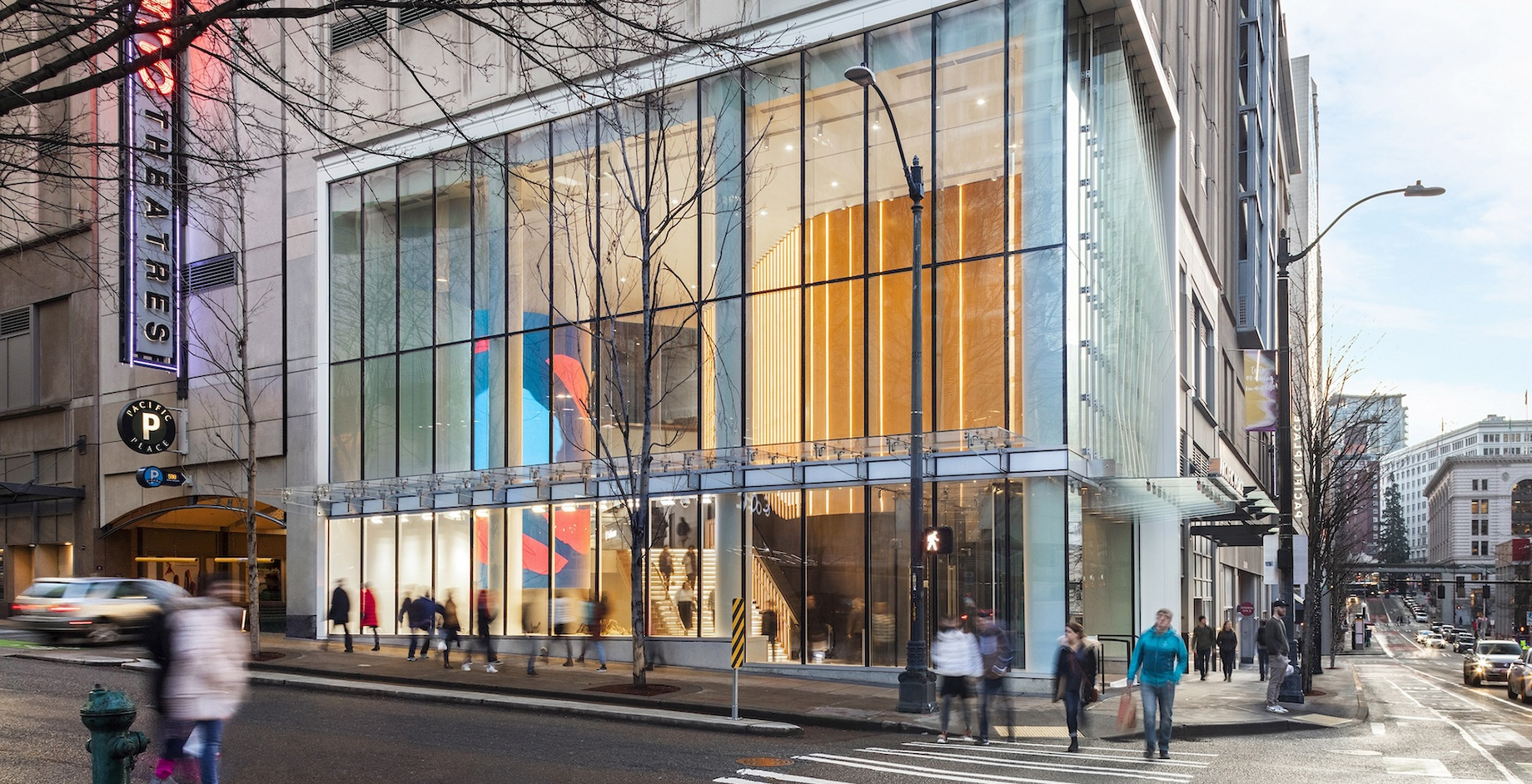
Pacific Place in Seattle
In February, a special servicer sold the 1.6 million-square-foot Woodbridge Center mall in Woodfield, New Jersey, for $70.4 million, creating a $155.7 million loss for the commercial mortgage-backed securities bondholders. Boscov’s, Dick’s Sporting Goods and Macy’s anchor the mall. The former Lord & Taylor store is owned separately and is up for sale.
And the deals aren’t confined to the U.S. Developer British Land sold its 50% stake in Sheffield’s 1.5 million-square-foot Meadowhall to its co-owner, Norway sovereign wealth fund Norges Bank. The $457 million deal values Meadowhall at $935 million, below the $1.8 billion valuation when Norges Bank bought its stake in 2012.
5 Tenants Expanding and 1 Closing: TJX, Dollar Tree, Ollie’s, T-Mobile, Wayfair and Red Lobster
TJX Envisions 1,300 More Global Stores on Horizon
TJX said its value proposition resonated with customers in the first quarter, driving up sales at stores that had been open for at least one year by 3% year over year. The company sees the long-term potential to grow its global footprint by at least 1,300 stores across existing banners in its existing markets of Australia, Canada, Europe and the U.S., according to president and CEO Ernie Herrman. During the fiscal quarter that ended May 4, the company added 18 stores to reach 4,972 and increased square footage 0.3% from the previous quarter.
Dollar Tree and Ollie’s Gain from 99 Cents Only Stores’ Liquidation
Space-starved retailers are snapping up real estate from the 371-store portfolio of liquidating chain 99 Cents Only Stores, which filed for Chapter 11 bankruptcy protection in April. Dollar Tree acquired designation rights for 170 of 99 Cents Only’s leases, the North American intellectual property of 99 Cents Only Stores and some on-site furniture, fixtures and equipment. “The portfolio complements our existing footprint and will provide us access to high-quality real estate assets in premium retail centers, enabling us to rapidly grow the Dollar Tree brand across the western United States,” said Dollar Tree COO Michael Creedon.
Meanwhile, discounter Ollie’s paid $14.6 million in a bankruptcy auction for 11 former 99 Cents Only locations across Texas. “The stores are the right size, located in good trade areas, have attractive rents and leasing structures and have been serving value-oriented customers for many years,” said Ollie’s president and CEO John Swygert.
T-Mobile Chases Rural Customers
Cellular phone retailer T-Mobile will get access to more rural customers if regulators approve its deal to acquire rival UScellular’s stores and some of its cellular network for $4.4 billion. UScellular has 620 stores, according to ScrapeHero, and it claims to serve about 40% of the U.S.’s rural population.
Wayfair’s First Physical Store Emphasizes the In-Person Experience
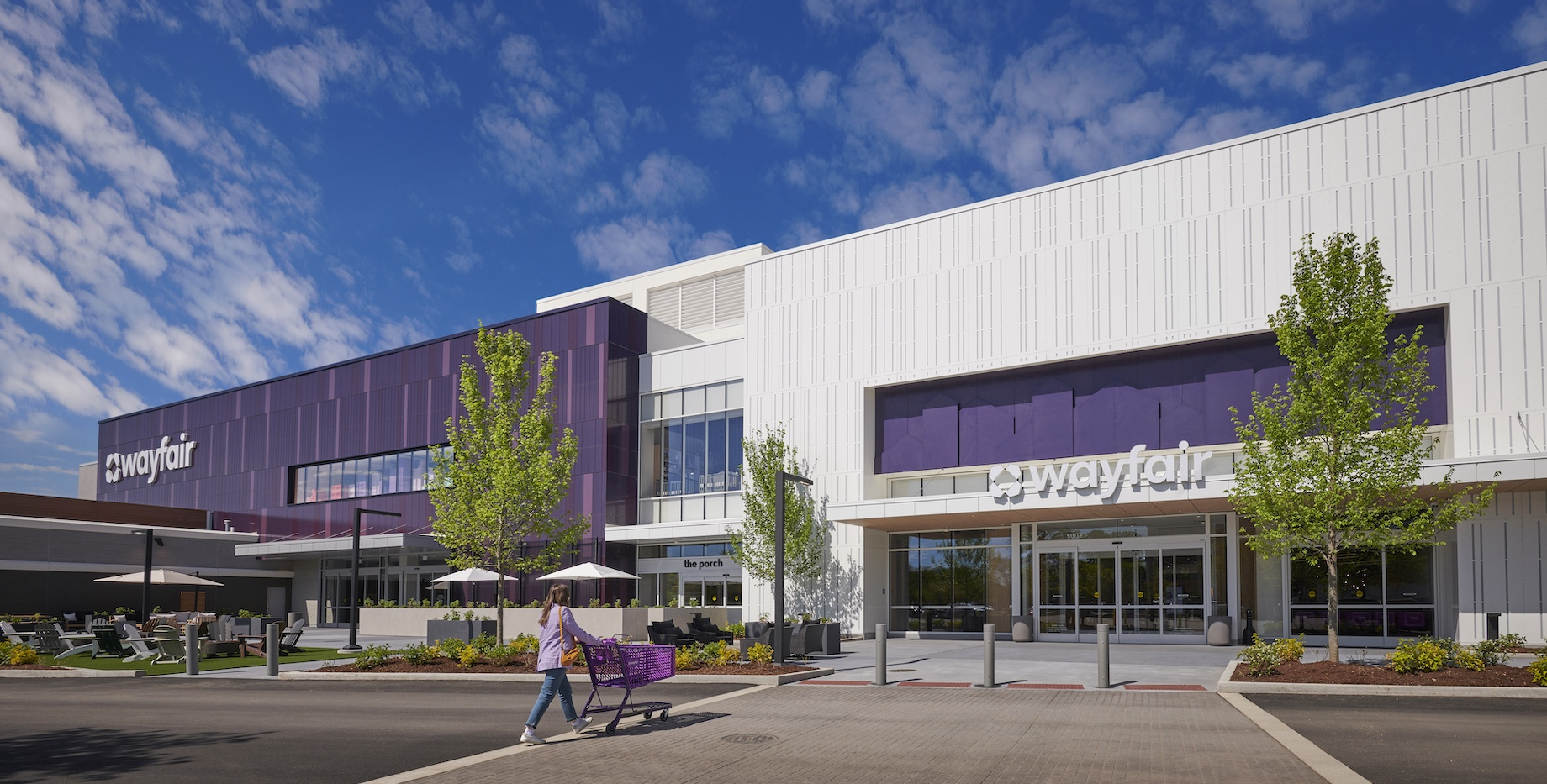
Digitally native retailer Wayfair’s first large-format, physical store opened last week in Wilmette, Illinois. The store spans 150,000 square feet over two levels and sells furniture, home decor, housewares, appliances and home improvement products. Customers will be able to take certain purchases home same day and otherwise can receive most products within a day or two via free shipping.
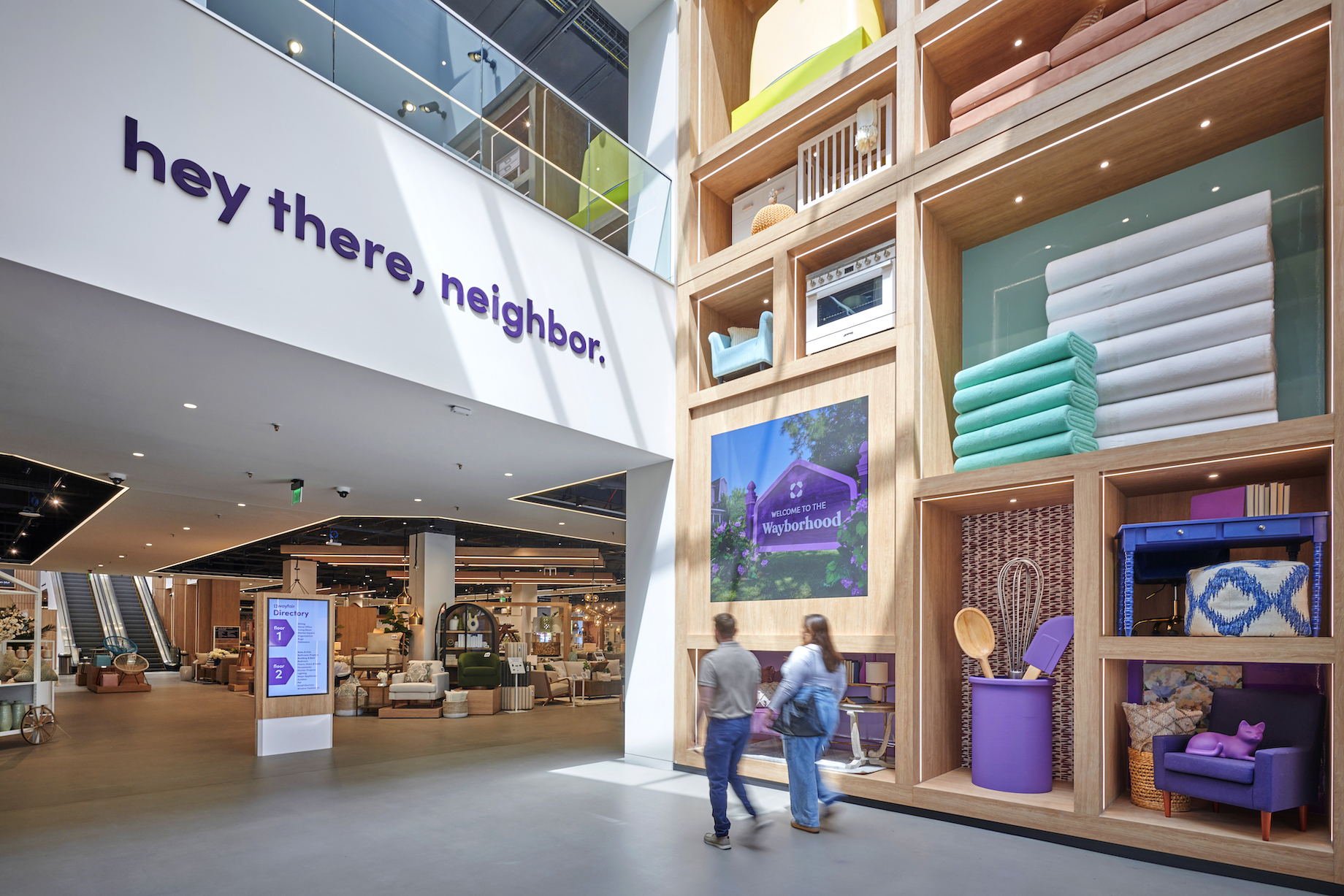
Larger-than-life displays and creative graphics create a fun shopping experience.
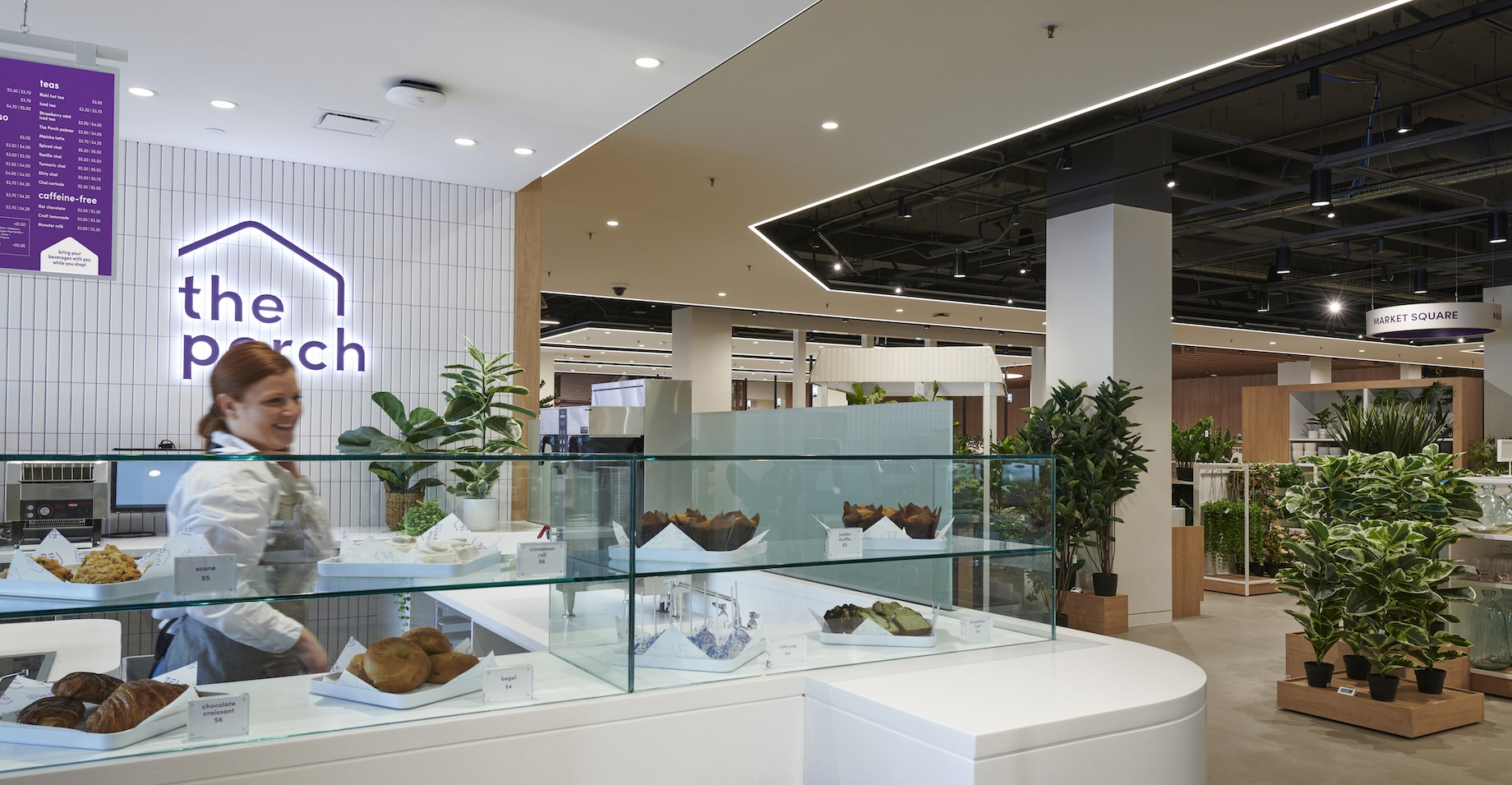
A cafe called The Perch serves up snacks and a spot to socialize.
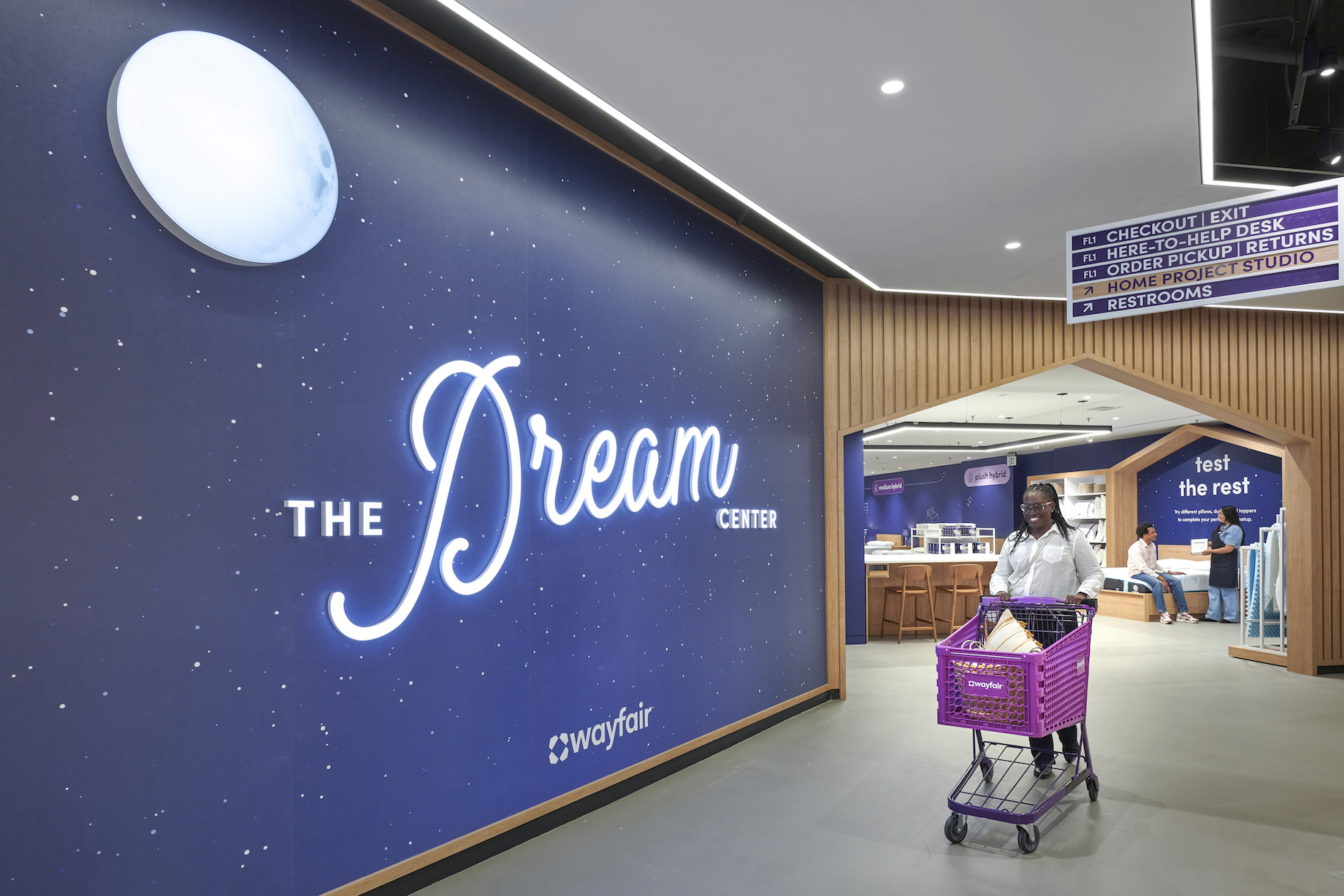
Customers can interact with associates and touch, feel and test products in person.
Red Lobster Wants to Close 108 Stores
Seafood chain Red Lobster filed for Chapter 11 bankruptcy protection and plans to restructure its debt-laden balance sheet. Traffic at the restaurant’s locations has declined significantly since 2019, according to the filing. One-time owner Golden Gate Capital partially funded its 2015 purchase of the chain with a $1.5 billion sale-leaseback for all of Red Lobster’s owned restaurant properties. As sales declined, Red Lobster fell behind in rent payments, and it’s now asking bankruptcy court for permission to reject at least 108 leases.
Celebrities Help Restaurants Stand Out
Despite Red Lobster’s woes, the restaurant industry is growing. Operators planned 1,832 U.S. restaurant openings in the first quarter of 2024 alone, according to JLL. In this crowd, a celebrity name with an army of loyal fans helps attract investors. JLL identified 361 celebrity restaurants in the U.S. and Canada that have opened in the past five years. This includes celebrity chefs like Gordon Ramsay, actors like Kevin Hart, athletes like LeBron James and musicians like Drake who own all or part of the business or who have signed licensing or management agreements.
2 Scenarios in Which Retail Is Breaking Ground: Mixed-Use and Grocery-Anchored
In San Diego, Simon and AMLI Residential will redevelop a former JCPenney at Fashion Valley into 850 luxury apartments and 100,000 square feet of new retail and dining, as well as green spaces. The project will begin after JCPenney’s planned closure at the end of 2025 and will deliver in late 2026. Fashion Valley recently completed a multimillion-dollar revitalization, including the addition of luxury brands like Dior, Bottega Veneta, David Yurman and Dolce&Gabbana.
In Northline, Leander, Texas’ new downtown mixed-use district, Endeavor will develop a supermarket-anchored retail center with several restaurants on 17 acres. The developer expects to break ground within the next year and open in the first quarter of 2026. About half of Northline’s planned 343 residential units have been built, and a mixed-use office building is expected to break ground this summer. Plans also include a hotel and a convention center.
Burlington, New Jersey's former Burlington Center mall is in the final stages of a conversion into The Crossings. When complete at the end of 2025, the once 800,000-square-foot mall will be a multi-building property with 2.5 million square feet of warehouse/industrial, 135,000 square feet of retail, a 153-room hotel and 500 multifamily units. The residential, which is last piece of the puzzle, is underway now. Freddy’s Frozen Custard & Steakburgers, Raising Cane’s and others are operational now on separate pad sites, and Discount Tire is expected to open soon. Panera Bread and Sleep Number share a building. Clarion Partners, MRP Industrial and Moonbeam Capital Investments make up the development team.
MCB Real Estate unveiled plans for VIVA White Oak, a 280-acre mixed-use project in Silver Spring, Maryland, with 3 million square feet of lab, office, research and medical space; 525,000 square feet of retail; 3,000 square feet of hotel; 75,000 square feet of seniors housing; 4,500 private residences; and 85 acres of open space. MCB plans to break ground in the second quarter of 2025, and the first retail component would open in mid-2028.
And in Prince Frederick, Maryland, MCB Real Estate and Generation Properties broke ground on Armory Square, a 110,000-square-foot, 12.5-acre shopping center that will be anchored by Aldi, Michaels, a hardware store, service tenants and food-and-beverage tenants on the site of a former middle school.
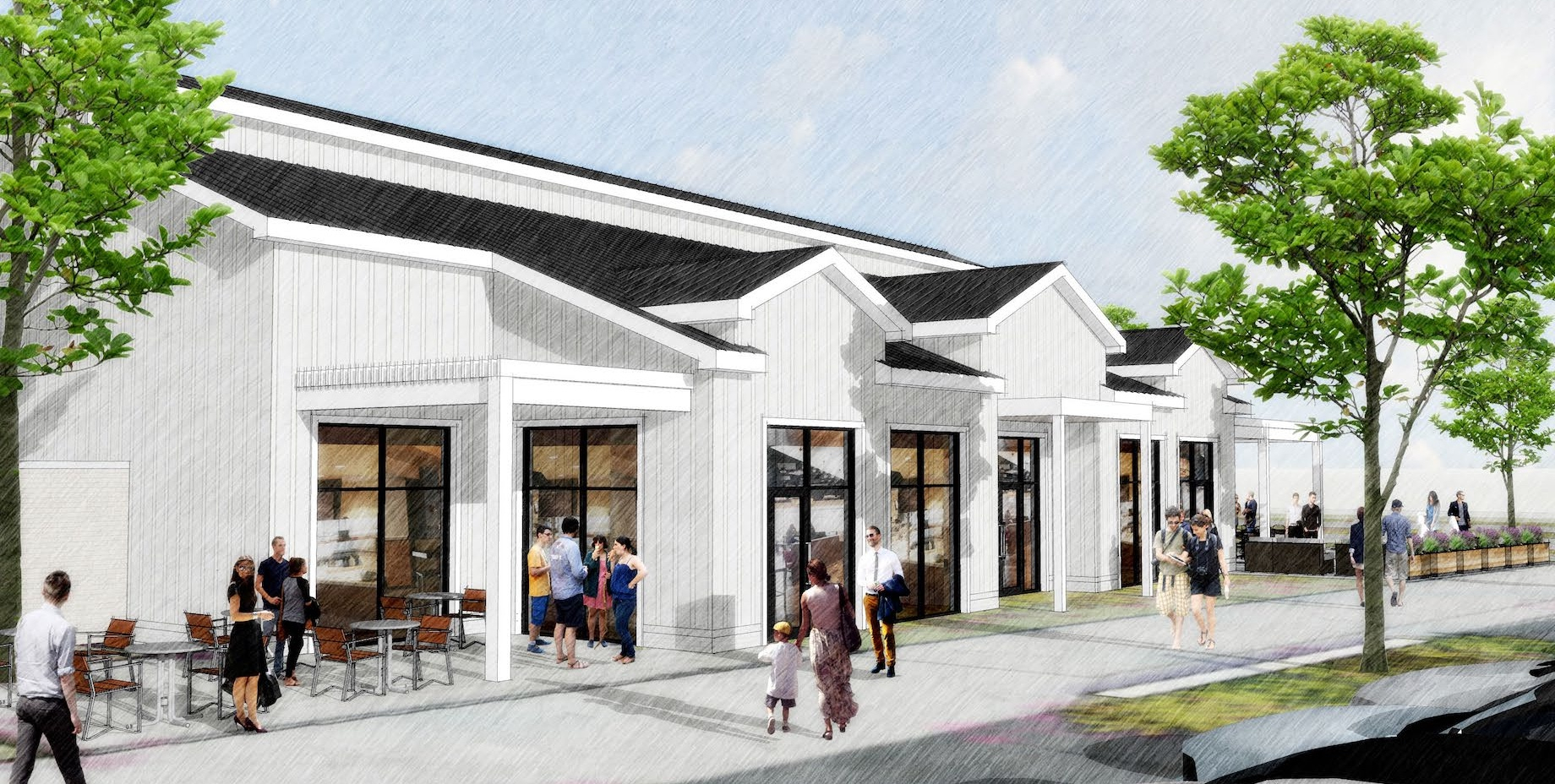
Armory Square
In Middletown, Delaware, Blenheim Group began site work on the 280,000-square-foot Bayberry Town Center to complement its 1,500-acre master-planned Village of Bayberry. Construction on a 4,000-square-foot Weis Markets anchor for the town center will begin in the fall. Weis and several other stores are expected to open in 2025.
CBRE secured a $30.9 million construction loan from a regional bank for Columbia Properties’ 86,622-square-foot, Publix-anchored Marketplace at Carnes Crossroads in Goose Creek, South Carolina, outside Charleston.
Marketplaces Boost Sales with Social Media Influencers
From haul videos, in which local influencers shop and show off their purchases, to livestream shopping parties, retailers and landlords are boosting sales via connections with social media influencers, experts said on an ICSC LAS VEGAS panel called The Social Shopper – Influencer Marketing’s Impact on Consumer Buying Habits.
A big marketing budget can pay influencers with millions of followers, but small landlords can find influencers by searching local hashtags on TikTok and Instagram. Many of these smaller influencers will do deals on trade, which helps when marketing budgets are tight, said Pacific Retail Capital Partners executive vice president of marketing Najla Kayyem. “You just need someone to manage it,” she said. Pacific Retail hires influencers to work with tenants that need help, she said.
“Find someone for whom the property is a third place and let them help you promote it,” said Ashlyn Booth, executive vice president and senior director of strategy and marketing for retail property management at JLL. Her firm hired 50 influencers to promote 50 of its properties over the holiday season, a move that improved sales and web traffic. The company gave influencers a specific set of guidelines to follow to ensure compatibility with each centers’ personality and quality standards. C+CT wrote about those efforts in a recent story called Chasing Gen Z and Retailers: Property Managers Put TikTok to Use. The company also recently tested a virtual shopping assistant called Cindy that it considers to be an influencer. Cindy is “on vacation” while the company tweaks her to return with new features.
The right influencer who has skill at editing and shooting social media videos will save you on time and equipment, said Zelnik director of national advisory Kyle Inserra, a real estate social media influencer himself. Good influencers know to “document, don’t create,” he said, and to “be the show, not the commercial.”
Tangible ways to measure success are important, too. Whitestone REIT COO Christine Mastandrea makes sure to ask: “How does an impression help me?” Whitestone tracks traffic to see if promotions boosted shopper visits, she said. Influencers also can be given specific discount codes or reservation slots to fill at restaurants, Kayyem said, and a retailer could release a product tied to a specific influencer, she added. “Then you can compare.”
What Flexible Office Hours Mean for Retail in Suburbs and Downtowns
Office real estate is not dead, but it is going to have to reimagine itself, CBRE Americas head of retail research Brandon Isner said at an ICSC LAS VEGAS panel called The Office – The Effect of Flexible Work Models on Foot Traffic. “Suburban and urban have shifted places,” he said.
Flexible work schedules have given consumers more spending power. The dramatic changes in commuter habits present opportunities for retailers to capture new consumers, said Placer.ai senior vice president of marketing Ethan Chernofsky. “Happy hour now happens on Thursday in the suburbs,” he said.
In major urban markets like New York City, an uptick in tourist traffic is helping offset empty offices’ effect on daytime populations, Chernofsky said. But most downtowns aren’t back to pre-pandemic foot traffic. For help transitioning to the new normal, office real estate pros are reaching out to the retail sector, which has “written the playbook on how to navigate the digital and physical divide,” said Avison Young principal and director market intelligence for retail Meghann Martindale.
Sterling Organization Names Bob Dake Principal

Sterling Organization named Bob Dake a principal. The past ICSC 4 Under 40 honoree has served as Sterling COO for the past three years, overseeing property management, leasing, lease administration, construction and property marketing for the company’s 12 million square feet of U.S. shopping centers. Dake also sits on Sterling’s six retail fund investment committees.
By Brannon Boswell
Executive Editor, Commerce + Communities Today